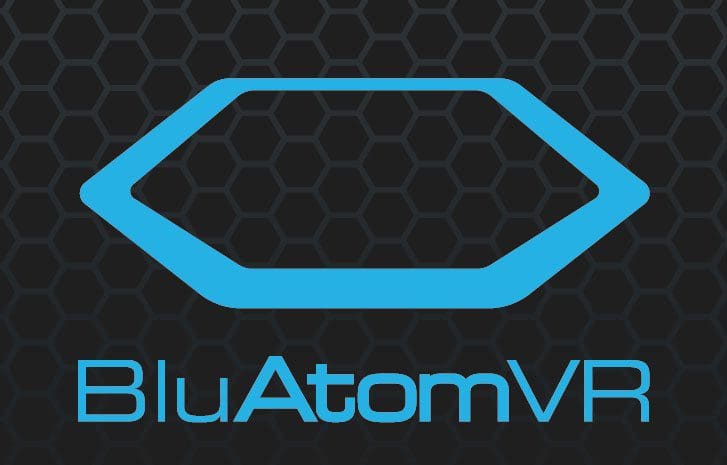
Firms included in the 2019 “Best Law Firms” list are recognized for professional excellence with persistently impressive ratings from clients and peers. Achieving a tiered-ranking signals a unique combination of quality law practice and breadth of legal expertise.
The 2019 rankings are based on the highest number of participating firms and highest number of client votes received on record. To be eligible for a ranking, a firm must have a lawyer recognized first in The Best Lawyers in America, which recognizes the top five percent of practicing attorneys in the U.S. Over 16,000 lawyers provided more than 1,125,000 law firm assessments, and almost 12,000 clients provided more than 107,000 evaluations.
Ranked firms, presented in tiers, are listed on a national and/or metropolitan scale. Receiving a tier designation reflects the high level of respect a firm has earned among other leading lawyers and clients in the same communities and the same practice areas for their abilities, their professionalism, and their integrity.
The official Best Lawyers 2019 publication can be read in its entirety here.
For more information about Stubbs Alderton & Markiles, LLP contact the firm at .

To view the press release on the transaction, click here.
Stubbs Alderton & Markiles' client, Central Valley Meat Company, announced this week that Central Valley Meat Holding Company has acquired Harris Ranch Beef Holding Company, including its wholly owned subsidiaries, Harris Feeding Company and Harris Ranch Beef Company.
The SA&M team was led by partners Marc Kenny and Sean Greaney and also included key deal team members Jonathan Hodes, Shanita Nicholas, Jared Brenner, Kevin DeBré, Michael Shaff, and David Stoops.
To read the full press release for this transaction, click here.
Stubbs Alderton & Markiles client Champion Technology, the provider of a next-generation expert system and analytic platform, DarkLight®, announced it is forming a strategic partnership with R9B. R9B (root9B, LLC), is a leading provider of cybersecurity products and services. The companies will form a technology partnership to leverage DarkLight's knowledge framework to optimize and cross-correlate data sets.
To read the full press release visit here.
Stubbs Alderton attorneys representing Champion Technology are Scott Alderton and Jonathan Friedman.
About Champion Technology Company's DarkLight
DarkLight is a next-generation cybersecurity analytic and automation platform. Driven by artificial intelligence (AI), this groundbreaking solution is a force multiplier which leverages the logic, knowledge, and reasoning of security analysts to deliver human-quality results, at scale. To learn more, please visit www.darklightcyber.com.
For more information about our Venture Capital and Emerging Growth Practice , contact Scott Alderton at
 Stubbs Alderton & Markiles and the Preccelerator Program are proud to announce the launch of their Startup Superhero Video Series - featuring SA&M Attorneys, Preccelerator Mentors, and entrepreneurs on topics specific to entrepreneurship and lessons learned throughout the journey.
Stubbs Alderton & Markiles and the Preccelerator Program are proud to announce the launch of their Startup Superhero Video Series - featuring SA&M Attorneys, Preccelerator Mentors, and entrepreneurs on topics specific to entrepreneurship and lessons learned throughout the journey.
This week we're featuring Preccelerator Mentor Mark Wald as he talks about "Mentor Partnership & Financial Modeling with BallParq.io."
Mark is an innovative problem solver who values simplicity, efficiency, and collaboration between people and organizations, with strong experience in financial modeling and data analytics to inform and support quick decisions on complex issues. Specific experience developing, deploying, and supporting new technologies to thousands of retail locations using 3rd party logistics and service providers. Professional specialties: Financial strategy & fundraising, sourcing business opportunities, conserving resources, enabling people, satisfying customers, analyzing complex data.
_______________________
To learn more about the Preccelerator Program, contact Heidi Hubbeling at .
 Stubbs Alderton & Markiles and the Preccelerator Program are proud to announce the launch of their Startup Superhero Video Series - featuring SA&M Attorneys, Preccelerator Mentors, and entrepreneurs on topics specific to entrepreneurship and lessons learned throughout the journey.
Stubbs Alderton & Markiles and the Preccelerator Program are proud to announce the launch of their Startup Superhero Video Series - featuring SA&M Attorneys, Preccelerator Mentors, and entrepreneurs on topics specific to entrepreneurship and lessons learned throughout the journey.
This week we're featuring Preccelerator Mentor Andrey Kudievskiy as he talks about "Startup Teams & Tech."
IT executive, Serial entrepreneur, CEO and Founder at Distillery.com, and named one of the 25 Inspiring Entrepreneurs to Watch in 2017 by Inc. Magazine. Andrey Kudievskiy started his career in tech at the age of 19 while working on his degree in computer science. Within five years Andrey had established his first company and played a key role in creating a successful cloud synchronization startup that was sold to a Fortune 500 company. A serial entrepreneur and talented developer in his own right, he is currently focused on enabling other entrepreneurs to build businesses and continuing Distillery’s expansion in the U.S. and international markets.
__________________________
Transcript
Speaker: Andrey Kudievskiy
Moderator: Heidi Hubbeling
Startup Superhero Series Featuring Andrey Kudievskiy on "Startup Teams & Tech"
Heidi: Tell me a little bit about yourself and your background and a little bit about Distillery.
Andrey: Absolutely! Distillery is a full-service software development company located here in Santa Monica. We like working with startups as well as enterprise clients. Now we are focusing on stack technology design and development. A little bit about myself, you can tell by my accent, that I came from Russia. Just a few years ago, not knowing anyone here in the States, I had a burning desire to build a business and to help other companies succeed in the area where I have a lot of knowledge and assist in technology. That’s how Distillery started - and so far, we have been successful. This year we got on the Inc. 5000 list for the fastest growing companies in North America. I hope that we position ourselves for the next year as well.
Heidi: Congratulations on that, that’s a huge honor! You are one of the mentors of the program and Distillery, in the Los Angeles tech scene, is one of the premier agencies for startups. What do you like most of working with startups? I know you are one of the mentors of program. Distillery is one of the most well-respected agencies in Los Angeles and you work with a lot of entrepreneurs. What do you like most?
Andrey: Sure, I like working with startups because you can quickly see the value of the work you do. You can see the results of your work. When you meet someone, let’s say your friend on the street and you ask them to “hey can you show me your phone” and see the application I have developed and you can say “wow!” That is just pure happiness. That is when I feel my life is accomplished. Versus working with enterprises when you can work with them for years and years for one of the projects. When it’s released its just a small part of something huge, you don’t really feel like you’ve contributed enough.
Heidi: It doesn’t feel as impactful. When you work with younger stage startup you feel like you become part of their team. On that note, some of the advice that you give with startups. What advice do you give them when they are selecting a stack? What kind of stack do they need to select to be most successful?
Andrey: For technology stack as startups, what I like to say is that they don’t need to overthink it. All the companies who try to build something big in the beginning they go all in. They don’t test the market. They don’t really know what it is. It’s rather important to release something, test the market, see if people use it and then adjust as needed. When people do something enterprise scale for a startup, they spend months and months for development and end up being behind the time curve. So, they are late to the market. We try to build something at a scale you need right now. Something small, go to the market test it. Do the alpha version, the beta version do the public release later. Then at the end when you see that your idea is valuable, its fine to go and rebuild some of the parts. You will lose 50% of your time on building something with the right technology stack, but then this product will do better in the market.
Heidi: What are some of the pros and cons of hiring an internal vertical team versus hiring a team like Distillery, an outside tech team?
Andrey: I think the ideal scenario is when there is a combination. A tech team that will help you on stuff and you have an extension. A company like Distillery who would just help you move faster. When you don’t have enough resources, you cannot move fast enough or maybe some parts of the projects are simply outside of your core expertise. That’s when bringing an agency would be meaningful. It would help you. Outsourcing everything and giving control to an agency doesn’t seem right to me.
Heidi: I think so, because when you outsource without having a technical strategist that is overseeing development internally. If you don’t have that person that is vested in your idea and you fully outsource then you just have somebody whose just project-based developing it. When they’re done, they walk away from the project and walk away from your idea.
Andrey: You must have a vision. You must be able to provide a clear direction. Of course, the digital part of it that you choose. They need to be comfortable adding something to your idea. Advising, according to their expertise what to do and what not to do. At the same time, I feel that getting a technical co-founder for the team really does miracles.
Heidi: Absolutely, so let’s go back to the Preccelerator a little bit. Not to be self-serving, but we really appreciate you as a mentor and you’ve provided great value thus far with your mentorship. What are some of your favorite things about working with the Preccelerator and working with our companies.
Andrey: Well, first thank you so much for having me. The Preccelerator is an amazing group of people and amazing group of potentially big startups and companies, that I see will really grow. To me the value is talking to those young entrepreneurs, seeing them to be in my shoes 5 years ago maybe three years ago depends on how fast they will grow. And exchange knowledge, bounce some ideas around. I also like helping people. That keeps me motivated. When I see that I prevented one person from making the same mistake that I made 5 years ago. That’s the best I can do.
Heidi: I think that’s the definition of true wisdom. When companies take advice from somebody that has already been through that cycle, through that path. Rather than making those mistakes on their own. That’s very valuable. Appreciate you being here and we will see you all at the next startup superhero series.
Andrey Kudievskiy
Distillery
_____________________
To learn more about the Preccelerator Program, contact Heidi Hubbeling at .
LOS ANGELES, Dec. 12, 2017 (NEWSWIRE) – Stubbs Alderton & Markiles, LLP announced today that it represented Platinum Equity in its sale of Keen Transport to Wallenius Wilhelmsen Logistics ASA (WWL). Financial terms of the transaction were not disclosed.
Keen Transport is a national provider of heavy-haul logistics and transportation services for the construction, mining and agriculture equipment markets. WWL, based in Oslo, Norway, is a global logistics operator serving the manufacturing industry with a special focus on vehicles, mining and construction equipment, and machinery. Founded in 1995 by Tom Gores, Platinum Equity is a global investment firm with $13 billion of assets under management and a portfolio of approximately 30 operating companies that serve customers around the world. The firm is currently investing from Platinum Equity Capital Partners IV, a $6.5 billion global buyout fund.
To view the full press release, click here.
ABOUT STUBBS ALDERTON & MARKILES, LLP
Stubbs Alderton & Markiles, LLP is a business law firm with robust corporate, public securities, mergers and acquisitions, entertainment, intellectual property, brand protection and business litigation practice groups focusing on the representation of, among others, venture-backed emerging growth companies, middle-market public companies, large technology companies, entertainment, and digital media companies, investors, venture capital funds, investment bankers and underwriters. Stubbs Alderton’s clients represent the full spectrum of Southern California business with a concentration in the technology, entertainment, videogame, apparel, and medical device sectors. Our mission is to provide technically excellent legal services in a consistent, highly-responsive and service-oriented manner with an entrepreneurial and practical business perspective. These principles are the hallmarks of our Firm.
For more information about the Mergers & Acquisitions practice at Stubbs Alderton & Markiles, contact Scott Galer at
Press Contact:
Heidi Hubbeling
Director of Marketing
 By December 31, 2017, any online service provider that has registered an agent with the U.S. Copyright Office through the paper-based registration system must submit a new registration using the new electronic system to preserve safe harbor protection under the Digital Millennium Copyright Act (“DMCA”).
By December 31, 2017, any online service provider that has registered an agent with the U.S. Copyright Office through the paper-based registration system must submit a new registration using the new electronic system to preserve safe harbor protection under the Digital Millennium Copyright Act (“DMCA”).
The DMCA, among other things, provides a safe harbor for online service providers from copyright infringement liability resulting from content posted on their websites or services by users. To qualify for DMCA safe harbor protection, online service providers must designate an agent to receive notifications of alleged copyright infringement by registering with the Copyright Office and each service provider must list their agent’s contact information on their website.
The Copyright Office’s paper-based registration system has been replaced by an online registration system. All online service providers seeking DMCA safe harbor protection must now register agents using the new electronic registration system. This applies to online service providers that have already designated DMCA agents using the paper-based system.
Online service providers that previously designated a DMCA agent using the paper-based system must resubmit their designations through the new electronic system before the December 31 deadline and renew their designations using this system at least every three years. Failure to register electronically by the end of the year will result in the expiration of existing designations and the loss of DMCA safe harbor protection.
What should online service providers do? All online service providers should submit a new DMCA agent designation using the online registration on the DMCA website by December 31, 2017. The fee for filing, amending or renewing a designation through the online system is $6.00.
How Stubbs Alderton & Markiles, LLP can help. We are a full-service law firm with expertise in intellectual property and technology law. We can help register your DMCA agent designation with the Copyright Office using the new electronic system.
For more information about this or other Intellectual Property issues, contact SAM Partner Kevin DeBré at

To read the full press release visit here.
Stubbs Alderton & Markiles, LLP attorneys representing ICPW Liquidation Corporation in this transaction were Louis Wharton, Scott Alderton and Kelly Laffey.
About Ironclad
Originally founded in 1998 in El Segundo - California, IRONCLAD is today headquartered in Farmers Branch, Texas and is the industry leader in high-quality task-specific PPE gloves. IRONCLAD continues to leverage its leadership position in the safety, construction and industrial markets through the design, development, and distribution of specialized task-specific gloves for industries such as oil & gas extraction; automotive; police, fire, first-responder and military and more. Ironclad engineers and manufactures its products with a focus on innovation, design, advanced material science, dexterity, and durability. Ironclad's gloves are available through industrial suppliers, hardware stores, home centers, lumber yards, automotive stores and sporting goods retailers nationwide; and through authorized distributors around the world. Built Tough for the Industrial Athlete™. To learn more and see more, visit: www.ironclad.com
About Stubbs Alderton & Markiles, LLP
Stubbs Alderton & Markiles, LLP is a business law firm with robust corporate, public securities, mergers and acquisitions, entertainment, intellectual property, brand protection and business litigation practice groups focusing on the representation of, among others, venture backed emerging growth companies, middle market public companies, large technology companies, entertainment and digital media companies, investors, venture capital funds, investment bankers and underwriters. Stubbs Alderton’s clients represent the full spectrum of Southern California business with a concentration in the technology, entertainment, videogame, apparel and medical device sectors. Our mission is to provide technically excellent legal services in a consistent, highly-responsive and service-oriented manner with an entrepreneurial and practical business perspective. These principles are the hallmarks of our Firm.
For more information on our Mergers & Acquisitions and Public Securities practices, contact Louis Wharton at .
[vc_row type="in_container" full_screen_row_position="middle" scene_position="center" text_color="dark" text_align="left" overlay_strength="0.3" shape_divider_position="bottom"][vc_column column_padding="no-extra-padding" column_padding_position="all" background_color_opacity="1" background_hover_color_opacity="1" column_shadow="none" column_border_radius="none" width="1/1" tablet_text_alignment="default" phone_text_alignment="default" column_border_width="none" column_border_style="solid"][vc_column_text]
In 2012 Stubbs Alderton & Markiles launched the first-of-its- kind Preccelerator® Program to provide select start-ups with co-working space, mentorship, sophisticated legal services, curriculum and access to a strategic perks portfolio with the objective of helping grow a founder’s idea from business concept to a funded company. Over the past five years, 34 companies have graduated the Program, of which 20 have received funding totaling over $9M.
Preccelerator® Program Class 8 companies include:




For more information about the Preccelerator® Program, visit www.preccelerator.com.
About Stubbs Alderton & Markiles, LLP
Stubbs Alderton & Markiles, LLP is a Southern California-based business law firm with robust corporate, public securities, mergers and acquisitions, entertainment, intellectual property, brand protection and business litigation practice groups focusing on the representation of, among others, venture- backed emerging growth companies, middle market public companies, large technology companies, entertainment and digital media companies, investors, venture capital funds, investment bankers and underwriters. The firm’s clients represent a broad range of industries with a concentration in the technology, entertainment, videogame, apparel and medical device sectors. The firm’s mission is to provide technically excellent legal services in a consistent, highly-responsive and service-oriented manner with an entrepreneurial and practical business perspective. These principles are the hallmarks of the firm. For more information, visit https://stubbsalderton.com.
About the Preccelerator® Program
The Preccelerator® is a novel platform offered to select start-up companies out of the Stubbs Alderton & Markiles, LLP Santa Monica office that provides interim office space, sophisticated legal services, education, networking, mentorship and $250,000 in usable perks from Google Cloud for Startups, Amazon Web Services, and HubSpot among others, with the objective of helping grow a founder’s idea from business concept to funded startup. The program also retains more than 50 active strategic mentors providing free office hours and discounted services, and provides over 50-plus educational workshops and networking events each year. The Program expanded in 2017 to accept a greater number of companies in more formalized classes, depending upon where the companies are in their evolutionary growth, expand benefits to accepted companies, and will look to make strategic investments backed by strategic angel investors. To apply to the Preccelerator, visit www.preccelerator.com/application.
Contact:
Heidi Hubbeling
Chief Operating Officer, Preccelerator® Program
310-746-9803[/vc_column_text][/vc_column][/vc_row]
SA&M Preccelerator Company nēdl, an app that allows radio listeners to use speech recognition to eliminate the need to go station-to-station to find specific news, sports, talk and music, has been named among the 12 finalists for the PILOT Innovation Challenge. PILOT is an innovation initiative of the National Association of Broadcasters (NAB). The PILOT Innovation Challenge recognizes creative ideas that leverage technological advances in the production, distribution and display of engaging content.
To read the full press release visit here.
About nēdl
nēdl uses proprietary Speech Recognition to let you search within 100,000+ live news, sports, talk, and music broadcast streams to find what you want and listen to the stream or add your unique voice to the global real-time database for instant discovery. Visit www.findnedl.com
To learn more about the Preccelerator® Program, contact Heidi Hubbeling, COO at (310) 746-9803 or
 Stubbs Alderton & Markiles and the Preccelerator Program are proud to announce the launch of their Startup Superhero Video Series - featuring SA&M Attorneys, Preccelerator Mentors, and entrepreneurs on topics specific to entrepreneurship and lessons learned throughout the journey.
Stubbs Alderton & Markiles and the Preccelerator Program are proud to announce the launch of their Startup Superhero Video Series - featuring SA&M Attorneys, Preccelerator Mentors, and entrepreneurs on topics specific to entrepreneurship and lessons learned throughout the journey.
This week we're featuring SA&M Managing Partner Scott Alderton as he chats about "How to Position Your Company for Financing." Scott is the Co-Chair of the Venture Capital & Emerging Growth practice at Stubbs Alderton, General Partner of SAM CREATV Ventures, and a thought leader in the startup financing space.
__________________________
Transcript
Heidi: Tell me a little bit about your practice and experience and what you love most about working with emerging growth companies?
Scott: Sure, I have been doing this for a long time. My practice is broad-ranging. Early on in my career, I was more of a corporate & securities lawyer doing traditional SEC type of work with larger companies. As this thing called the “Internet” began to develop in the '90s, it looked like it was interesting, I transitioned my practice to being more of a technology and venture capital lawyer. I really like working with companies all along their evolutionary path, but I really like working with early-stage companies. They have diverse, wide-ranging needs, they typically don’t have the resources that large companies have. I feel like I can play a vital role as an advisor even more-so than a lawyer. The lawyering part is the easy job to me, the advising part is really the fun part.
Heidi: Let’s talk a little bit about emerging growth companies and how they approach financing. What are some of the things an early stage company should be thinking about when they are going for funding. If they are really early, how do they attract investors?
Scott: I think it's really a couple of things. The first thing that every company needs to do is to decide what its vision is and what kind of company it's going to be. Venture capital is not right for every company and there’s lots of different ways to fund your businesses. The overwhelming majority of businesses do not get funded with venture capital. Venture capital is a way of financing a business through its growth stage. When it has a proven product, when it's found its market and when it now needs to scale and grow. That’s when venture capital comes in and helps a company do that, but to get to that point is challenging. First you need to decide; am I a company that is going to require venture capital and am I company that is going to address a large scaling market, be disruptive, grow to be very large? That’s a venture fundable business. Through the early stage, the second thing you need to figure out is - how am I going to get to the point where professional investors are going to be interested in me? Professional investors are not going to be interested in every company like I said they are going to be interested in companies where they can apply their capital, grow and scale the business.
Heidi: As far as some of the tips that you would give to them, for them to actually attract investors - where do they look for them? Are warm introductions the best thing? What are some of the tactics?
Scott: First of all, don’t look too early. Understand that if you are really going out and seeking traditional, professional investment that you are going to have to have some metrics. You’re going to have to have at least a MVP of a product, you’re going to find a market where that product is being accepted. You are growing and scaling a business in that market. Whether its users or customers - whatever it is - you have to get to that stage first. How do you get to that stage? Well, you get to that stage by raising money from friends and family, from people who know you. From people that are going to invest in you, because you’re the entrepreneur. They believe in you. Relatives, friends, strategic business partners. A second way to look at that is for people who ultimately will be interested in your product, even though you have no metrics or proof of your product today. They will invest in you because they want your product to hit the market. Might be a strategic investment. Figure out a way - come hook or crook- to raise that initial capital to where you can develop your product. Find a market place and the other doors will open.
Heidi: From a legal and business stand-point, how do they best position themselves?
Scott: Early stage companies by necessity cut corners, right? You don’t have resources. You’re boot strapping. You’re making promises that you can’t fully document. You can’t always afford lawyers or professional advisers and that’s fine. Do not second guess any of that. You got to where you are, but when you reach that point where you are now ready to go out and find professional capital, it's important to look internally first. That you look at yourself, do the same kind of diligence with yourself that an investor is going to do on you. That way there are no surprises. Figure out capital issues and fix them. Figure out your employment issues and fix them. Figure out your commercial contracts that you have done on a whim and fix them. So that investors don’t look at you and think good concept, but I am not going to take all this risk.
Heidi: There’s another topic that startups tend to think a lot about but aren't typically fully educated on - how should they approach valuation and dilution?
Scott: I think that people get hung up on valuation because they have some number set in their mind or they have some experience that they talk about with other entrepreneurs. They think they either have to hang on to a certain percentage of their business or it’s not appropriate to give a certain amount at a certain round. You have to come into a financial transaction with an open mind and understand not just what you’re selling and what you have to give up for that. Also, where you are going and where that money is going to take you? I see entrepreneurs being penny wise and a pound foolish all the time. They think they don’t want to be significantly diluted. They end up throwing a wrench in the negotiation or they loose a financing deal because they want to hang on to a few points of equity. In reality that money is going to take them so far that they are going to be vast and more valuable. Its a simple proposition of - there’s a pie and you want a piece of that pie. It's much better to own a smaller piece of a gigantic pie than it is to own a big piece of a small pie.
Heidi: Appreciate you for being here and I’m sure we will have you back for other topics some time soon.
Scott: Thanks, looking forward to it.
______________________
To learn more about our Venture Capital & Emerging Growth Practice, contact Scott Alderton at .
In this two-part series, Kelly Laffey discusses the legal pitfalls that startups can avoid when forming their company. Kelly counsels clients on issues related to corporate governance, mergers and acquisitions matters, and securities regulation and compliance. She also assists with financing for large private corporations, and entity formation and succession planning for professional services firms. Kelly provides general business counseling on a variety of up-and-coming regulatory issues for small and emerging companies that offer commercial services, allowing them to explore new business opportunities in various states. Drawing on her diverse work experience in the entertainment arena, including time spent with talent agencies, and music and television production companies, Kelly also assists on matters related to licensing, marketing, and exploitation of intellectual property rights.
___________________________________________________
In Part 1 of this series, I described some typical legal problems that startup companies face when they try to go it alone in the early stages of their business-related to the choice of entity form and jurisdiction and common issues that arise with respect to the division of equity. In part 2, I discuss issues related to securities laws and intellectual property and finally offer some words of advice regarding how to manage the costs of hiring an attorney early on.
Compliance with Securities Laws
Any issuance of securities, meaning stock, LLC interests, options, warrants, convertible notes, convertible securities (or SAFEs) and more, will be subject to federal and state securities laws. Startup companies often need to find an exemption to the registration requirements of federal securities laws until they are ready to go public. Securities law is a large and complex subject that really requires a good corporate attorney to help explain those obligations relevant to a particular company in a particular given circumstance. Failure to comply with securities laws can result in a huge financial burden on the company, the founders and recipients of equity, including employees and investors, when fines are imposed or the recipients are forced to pay a much higher price for the equity than what was intended. An experienced securities practitioner can help you find the right exemption and implement the right process to avoid fines and adverse consequences.
Protecting Your Intellectual Property and Employment Issues
It is critical to have proper employment documentation in place and such documentation should properly protect the company’s intellectual property. Typical employment agreements include “at-will” offer letters, independent contractor agreements, consultant or advisor agreements and stock incentive award documents. Employment laws vary from state to state so depending on what state you’re in, you may need to include specific provisions to comply with applicable state law. One of the most important employment documents which every employee (including co-founders) should sign is a proprietary or confidential information and inventions assignment agreement. This document ensures the company’s confidential information will remain confidential and that any ideas, work product or deliverables created by the company’s employees while working for the company will be owned by the company. These agreements generally prevent key employees who have developed significant intellectual property for the company from claiming rights in such intellectual property in the event that they leave.
Trying To Do It Yourself
For the reasons stated above and many more, one of the biggest mistakes a company can make is trying to do the legal formation work on their own or with an inexperienced legal service provider. All of the mistakes described above are correctable but correcting them takes time and can incur greater cost than getting professional advice from the beginning. Many firms have very reasonable startup packages for early-stage companies that include both forming the company properly and providing a suite of documents covering most, if not all, of the above issues for the company’s use, for a very reasonable flat fee. These packages are designed to get the company started and provide you with the basic forms of agreements you need to be protected. Once these are put in place, the company is unlikely to incur significant legal costs until it raises capital or undergoes another significant event. While a startup package fee may still seem like a significant amount of money to spend in a company’s early stages, the value is immeasurable over the life and success of the business.
_________________________
For more information about startup legal pitfalls, Startup Formation, and other emerging growth issues, contact Kelly Laffey at .
For more information on the Preccelerator, SA&M's early-stage accelerator, visit https://preccelerator.com/
In this two-part series, Kelly Laffey discusses the legal pitfalls that startups can avoid when forming their company. Kelly counsels clients on issues related to corporate governance, mergers and acquisitions matters, and securities regulation and compliance. She also assists with financing for large private corporations, and entity formation and succession planning for professional services firms. Kelly provides general business counseling on a variety of up-and-coming regulatory issues for small and emerging companies that offer commercial services, allowing them to explore new business opportunities in various states. Drawing on her diverse work experience in the entertainment arena, including time spent with talent agencies, and music and television production companies, Kelly also assists on matters related to licensing, marketing, and exploitation of intellectual property rights.
___________________________________________________
In my practice as a corporate attorney, I work primarily with startup and emerging growth companies. This article may read similar to an advertisement for legal services and there may be some truth to that. My ultimate goal as an attorney, however, is to save startup companies time and money (and stress) in the long run by doing things right from the start which will allow the company to put more resources to work on growing the business rather than fixing mistakes that could have easily been avoided.
Attorneys are often brought it in to work with clients who have done a significant amount of the formation and organization work themselves or through an online legal service provider at a low cost. While it is certainly understandable that a very early stage company does not want to incur more legal cost than it has to, what seem like very minor issues to founder can lead to a lot of unnecessary clean-up work and time spent determining the best way to fix those issues including if and how to disclose them to potential investors, strategic partners or others that are critical to the business.
The unfortunate fact is that errors in company formation usually come to light when a company is about to engage in its first major financing or strategic transaction and potential investors or strategic partners start doing their “due diligence” on the company, i.e., looking into its formation documents, the founder agreements, employment agreements, etc. This is often a critical time for the company as the founders have begun conversations with potential investors or a strategic partner, built momentum and are usually geared to start scaling the business. When the problem areas are identified and those activities are put on hold, it can cause a panic at the company, requiring lawyers to address the errors on a tight timeline in order to minimize the damage and not lose momentum. The result is typically a very high legal bill for a financing or strategic transaction.
In this two-part series, I describe some common legal issues encountered by startups that are not properly considered without legal counsel and which, when thoughtfully discussed with legal counsel prior to forming the company, should spare the company from legal expenses for corrective measures.
Choosing the right entity AND the right jurisdiction for you.
One of the first decisions a new company has to make is what legal entity form to take. There are without a doubt dozens of articles that say you should be a C-corp for these reasons or you should be an LLC for those reasons. Maybe you’ve read or know something about S-corps and you think that sounds like a good idea. The reality is that the right entity form for your company is very specific to the facts and circumstances of your company. Factors we consider include, among others: How many founders are there? How many employees will the company have? Will the company raise money from VCs or angels (and if so, does it expect to do so right away or will that be much further in the future of the company)? What is the anticipated size of the business? In what industry does the business operate? What might make the most sense now might not serve as the best form later and the form of entity can generally be changed later if necessary. These are all factors a good lawyer or tax advisor can talk through with a new business and provide guidance regarding which options to select based on the company’s business plans.
The less often thought about issue is where to form the company. As a lawyer practicing in what’s been termed “Silicon Beach,” most of our clients are based in California and so many assume they should organize or incorporate in California. For some companies, being formed in California is perfectly fine, however, California can also be problematic for a number of reasons. Many outside investors do not like to invest in California entities because California does not have the established corporate jurisprudence that Delaware has and so there is an element of unpredictability in California. Companies will often be advised to incorporate in Delaware because Delaware corporate law is seen as both business and investor friendly. However, if a company incorporates in Delaware, it has to engage a registered agent located in Delaware and so for some companies, it does not always make sense to pay the registered agent fees. Other factors to consider when choosing a jurisdiction are filing fees, franchise taxes and required annual filings. These are all considerations a corporate lawyer can help startups navigate.
Division of Ownership; Dilution and Vesting.
This can be an awkward conversation amongst founders but it is an important conversation to have early on in the life of the business. How much of the company should each founder own? What is each founder bringing to the company in terms of skills, resources and service and how do we value what each founder adds? How much dilution are the founders willing to endure and from which sources, i.e., outside investors, an employee option or stock pool, venture debt transactions, etc.? Should the equity be subject to vesting and continued service to the company?
I’ve often encountered very early-stage clients who have 2 to 3 initial founders and they have already diluted themselves by giving away equity such that together, they own less than half of the company. Founders are so passionate and focused on developing the idea and growing the business, they don’t necessarily have good insight when it comes to managing the cap table. Further, I’ve seen companies provide equity grants to service providers or intended partners of the business without subjecting the grants to vesting or continued service to the company over time. We typically recommend that all service-related equity vest over a certain number of years to ensure the company is getting the intended value in exchange for that equity.
_________________________
For more information about Startup Formation and other legal pitfalls for startups, contact Kelly Laffey at . Stay tuned for Part II of the Startup Pitfalls Series on Monday, October 16th.
For more information on the Preccelerator, SA&M's early-stage accelerator, visit https://preccelerator.com/

Stubbs Alderton & Markiles, LLP attorneys representing HouseCanary in the transaction were Greg Akselrud and Adam Bagley.
To read the full press release on the financing, click here.
About HouseCanary
Founded in 2014, HouseCanary's mission is to help people make better real estate decisions. Built on a foundation of great data, powerful models and predictive analytics, the HouseCanary platform aggregates millions of data elements, including more than four decades of property data and a rapidly expanding arsenal of proprietary data calculations and analytics, to accurately define and forecast values and market influences. HouseCanary's Series A investors include Hillspire (Alphabet Executive Chairman Eric Schmidt's family office), Alpha Edison, ECA Ventures, Raven Ventures and other top investors including Egon Durban and Nikesh Arora. The company is headquartered in San Francisco. For more information, visit www.housecanary.com.
About Stubbs Alderton & Markiles, LLP
Stubbs Alderton & Markiles, LLP is a business law firm with robust corporate, public securities, mergers and acquisitions, entertainment, intellectual property, brand protection and business litigation practice groups focusing on the representation of, among others, venture backed emerging growth companies, middle market public companies, large technology companies, entertainment and digital media companies, investors, venture capital funds, investment bankers and underwriters. Stubbs Alderton’s clients represent the full spectrum of Southern California business with a concentration in the technology, entertainment, videogame, apparel and medical device sectors. Our mission is to provide technically excellent legal services in a consistent, highly-responsive and service-oriented manner with an entrepreneurial and practical business perspective. These principles are the hallmarks of our Firm. For more information, visit www.stubbsalderton.com

PLAN ASSETS: The first hurdle is whether the Company’s assets will be considered “plan assets” and what are the implications if the Company’s assets are regarded as plan asset? The general rule is in general that a portion of the Company’s assets will be treated as plan assets in percentage that pension plan investment bears to all investment.[2] As having the Company’s assets treated as plan assets turns the Company’s management into plan fiduciaries, plan asset treatment is to be avoided. To avoid a portion of its assets being treated as plan assets of the investing plans, the Company must meet one of the exceptions listed in the plan asset regulation.[3]
UNRELATED BUSINESS INCOME. Another issue for pension plan investors, completely apart from the prohibited transactions discussed above, is the determination of whether an investment in a Company will generate unrelated business income (“UBI”)[23] for the pension plan or exempt organization investor. As noted above, an operating company is not subject to plan asset treatment, but an operating company may well generate unrelated business income.[24] Income from a business that an exempt organization or pension plan operates or invests in is treated as UBI. UBI less allowable deductions results in unrelated business taxable income, upon which the unrelated business income tax is imposed[25].
Income from dividends, interest, royalties, rents and capital gains are excluded from UBI[26]. Rents of personal property and rents based on the income or profits of any person are includible in UBI.[27] A portion of dividends, interest, royalties, rents and capital gains derived from debt-financed property will be included in UBI.[28]
The allocation of net profits to an investing pension plan by a limited liability company (“LLC”) or other partnership that itself conducts an operating business will be treated as UBI to the investing Plan.[29] A plan really has three choices when considering an investment, (a) avoid an investment in an active business through a pass-through entity like an LLC, (b) invest in an active business through a pass-through entity and pay the tax on the UBI, or (c) form a wholly-owned C corporation to hold the interest in the operating LLC (generally known as a blocker corporation). Where a sponsor is promoting an investing in an operating business through a pass-through entity, the sponsor itself may form the blocker corporation through which plans, exempt organizations and foreign taxpayers may invest.
As a general rule, the purchase of an interest in an investment that would otherwise be exempt from UBI, for instance because it generates royalties, dividend, interest or rents, by incurring debt or buying subject to debt will cause a portion of the income to be taxed as UBI.[30] The determination that an investment constitutes “debt financed property” that will cause a portion[31] of the income from the investment to be UBI can be made at the investing plan level and at the investment level. For example, if a plan borrows to buy a corporate bond, a portion of the interest from that bond will debt-financed property. In addition, if a plan invests in an LLC that borrowed to acquire an asset, the debt-financed character of a portion of the income will be passed through to investing plans.
Section 514 provides a limited exception from acquisition indebtedness treatment for mortgage debt secured by real property owned by a “qualified organization”. The term “qualified organization” includes (a) a charitable educational organization, (b) a pension trust, (c) a corporation formed to hold real estate for a pension plan or charitable educational organization, and (d) a church retirement income account.[32] If a partnership or LLC will acquire real estate subject to mortgage debt, as is typical, the sponsor may make the investment more attractive to potential pension plan investors by satisfying the requirements for partnerships to avoid debt financed income for investing plans in the LLC’s operating agreement or the limited partnership’s limited partnership agreement.[33]

For more information about our Tax & Estate Planning practice, contact Michael Shaff at
______________________________________________________________________________
[1] https://www.ici.org/research/stats/retirement/ret_16_q4
[2] 29 C.F.R. §2510-3.101(a)(2)(second sentence); the first sentence of subsection (a)(2) establishes the “general rule” that a pension plan’s assets consist of its investment but not the underlying assets of the entity. The second sentence relegates that rule to being an exception.
[3] 29 C.F.R. §2510.3-101 will be referred to as the “plan asset regulation” in this article.
[4] 29 C.F. R. §2510-3.101(b)(1).
[5] 29 C.F.R. §2510-3.101(j)(example 1).
[6] As Regulation D is an exemption from registration pursuant to Section 5 of the Securities Act of 1933, securities offered pursuant to Rule 504 or 506 would not satisfy this part of the plan asset regulation.
[7] 29 C.F.R. §2510-3.101(b)(2).
[8] 29 C.F.R. §2510-3.101(b)(3) and (4).
[9] 29 C.F.R. §2510-3.101(c)(1): “An ‘operating company’ is an entity that is primarily engaged, directly or through a majority owned subsidiary or subsidiaries, in the production or sale of a product or service other than the investment of capital.”
[10] 29 C.F.R. §2510.3-101(d).
[11] 29 C.F.R. §2510.3-101(e).
[12] 29 C.F.R. §2510.3-101(d)(3).|
[13] 29 C.F.R. §2510.3-101(e).
[14] 29 C.F.R. §2510.3-101(j)(example 7).
[15] 29 C.F.R. §2510.3-101(j)(example 8).
[16] 29 C.F.R. §2510.3-101(f).
[17] 29 C.F.R. §2510.3-101(f)(1).
[18] 26 U.S.C. §4975(e)(3).
[19] 26 U.S.C. §4975(a)).
[20] 26 U.S.C. §4975(f)(2).
[21] 29 U.S.C. §1106
[22] Harris Trust Savings v. Salomon Smith Barney Inc., 530 U.S. 238 (2000). Salomon Smith Barney acted as broker for a pension plan’s fiduciary, executing trades that constituted self-dealing prohibited transactions. (Id.) The Supreme Court found that although not a fiduciary, Salomon Smith Barney was a party in interest and therefore could be sued for the plan’s actual damages, effectively making the defendant the insurer of every transaction that the fiduciaries engaged in.
[23] Internal Revenue Code (I.R.C.), 26 U.S.C. §511-514.
[24] I.R.C. §512(a).
[25] Id.
[26] I.R.C. §512(b).
[27] I.R.C. §512(b)(3).
[28] I.R.C. §511(a)(1).
[29] I.R.C. §512(c)(1).
[30] I.R.C. §514(a).
[31] In short, the ratio that average acquisition indebtedness bears to the average basis of the debt financed property will determine the portion of the income from the debt financed property that will be UBI. As the amount of debt and the adjusted basis of the debt-financed property change, the portion of the income treated as UBI will change. I.R.C. §514(a).
[32] I.R.C. §514(c)(9)(C). The exemption for these organizations may reflect Congress’s determination that pension plans and certain educational institutions often invest in leveraged real estate.
[33] I.R.C. §514(c)(9)(E).
(Los Angeles, CA - June 19, 2017) Stubbs Alderton & Markiles, LLP announced that its clients, Kravitz and Kravitz Back Office Solutions, have been acquired by Ascensus. Kravitz is a retirement administration firm and Cash Balance specialist focused on bringing its clients the latest in the design, administration, and management of corporate retirement plans. Kravitz Back Office Solutions delivers private-label actuarial services to third-party administrators across the country to help them grow and succeed with Cash Balance plans.
Stubbs Alderton & Markiles' attorneys representing Kravitz in the transaction included Scott Galer and Kelly Laffey.
For the full press release, click here.
About Stubbs Alderton & Markiles, LLP
Stubbs Alderton & Markiles, LLP is a business law firm with robust corporate, public securities, mergers and acquisitions, entertainment, intellectual property, brand protection and business litigation practice groups focusing on the representation of, among others, venture backed emerging growth companies, middle market public companies, large technology companies, entertainment and digital media companies, investors, venture capital funds, investment bankers and underwriters. The firm’s clients represent the full spectrum of Southern California business with a concentration in the technology, entertainment, videogame, apparel and medical device sectors. Our mission is to provide technically excellent legal services in a consistent, highly-responsive and service-oriented manner with an entrepreneurial and practical business perspective. These principles are the hallmarks of our Firm. Visit www.stubbsalderton.com
For more information about our Mergers & Acquisitions practice, contact Scott Galer at
What an exciting evening it was! 4 talented entrepreneurs gave their 5 minute pitches to a crowd of over 100 people at the May 18, 2017 Preccelerator Demo Day. The evening was topped off by the motivating presentation on "Fearless Media" by SAM CREATV Ventures Partner Peter Csathy. In case you missed it, check out the video!
About the Preccelerator Program
The Preccelerator® Program is a platform offered to select start-up companies out of the Santa Monica office of Stubbs Alderton & Markiles, LLP that provides interim office space, sophisticated legal services, mentorship and access to a strategic perks portfolio with the objective of helping you grow your idea from business concept to funded startup. The Preccelerator® Program provides these benefits to as many as 10 promising young startups in separate growth tracks.
For more information about the Preccelerator, contact Heidi Hubbeling, COO at .